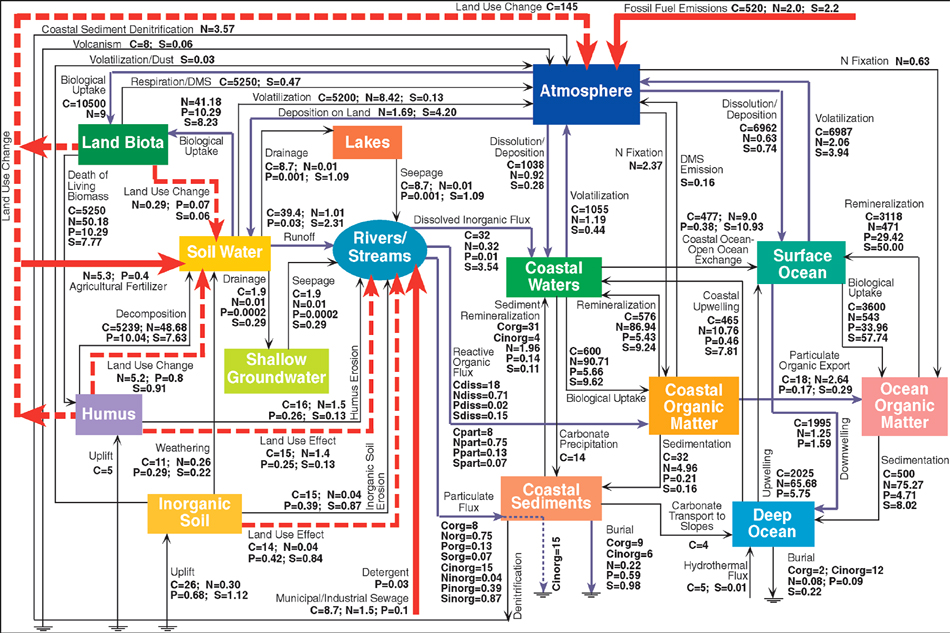We've already "messed up" the carbon cycle beyond anything seen on this planet before (not more extreme than any previous climate mode, but just different than any previous mode). It will take decades at least (hopefully) for the changes to fully register and affect the various systems that compose the climate, but we live on a different planet now than we did a few hundred years ago. We have a small chance to restore the carbon cycle to within baseline parameters, but it will still take decades for those effects to restore and stabilize the climate.
Even the crust of the planet has heated up very rapidly over the past 60 years when compared with the past 500; it's like a hockeystick! google: Beltrami & "crustal heating"
In that "Restoring the Biosphere" thread, my most recent posts talks about how the carbon cycle is broken, and ways of fixing the carbon cycle.
http://www.scienceagogo.com/forum/ubbthreads.php?ubb=showflat&Number=36396#Post36396So my point is that we've gone way beyond "minimizing" our distortion of the carbon cycle. We need to learn to work with the carbon cycle, rather than transcending Nature, and aspire to be as good as Nature. We have finally learned about the complexities of the carbon cycle, so when will we stop acting as if we did not know. When will we stop shunting long-seqestered carbon from its hallowed grave and up into the air, and start shunting carbon back into the soil so as to restore a more stable climate and the planet's biodiversity.
It took millions of years for the planet to build enough biodiversity to draw down all the CO2 now stored in peat, humus, kerogen, lignites, coal, and oil... and finally make this planet a habitable place for the likes of us. And within a few hundred (or thousand) years we have completely undone much of what evolution accomplished over that long span. Is that moral? When our children look through the eyes of their grandchildren, what sort of world will they see. What will their ancestors see and think?
It is a moral imperative to restore the soils, seas, and skies of our mother, to restore Gaia's achievement of life everlasting.
There is a lot of work to do:
http://www.soest.hawaii.edu/oceanography/faculty/mackenzie/mackenzie_TOTEM.html
Fortunatly, there is a lot of us to learn about it and to do it.... It's not about surviving until we get to be Type I, but having a habitable place to enjoy once we get there. Plus we won't get there at all, without starting over again (the 6000 years scenario), unless we have a very habitable place from which to progress (the 200 year scenario).
In addition to all the high-tech solutions to reduce emissions such as nuclear, solar, tidal, clean coal, wind, geo, desalination, etc....
Restoring biodiversity and the richness of the carbon cycle seems like the fundamental way to go.




